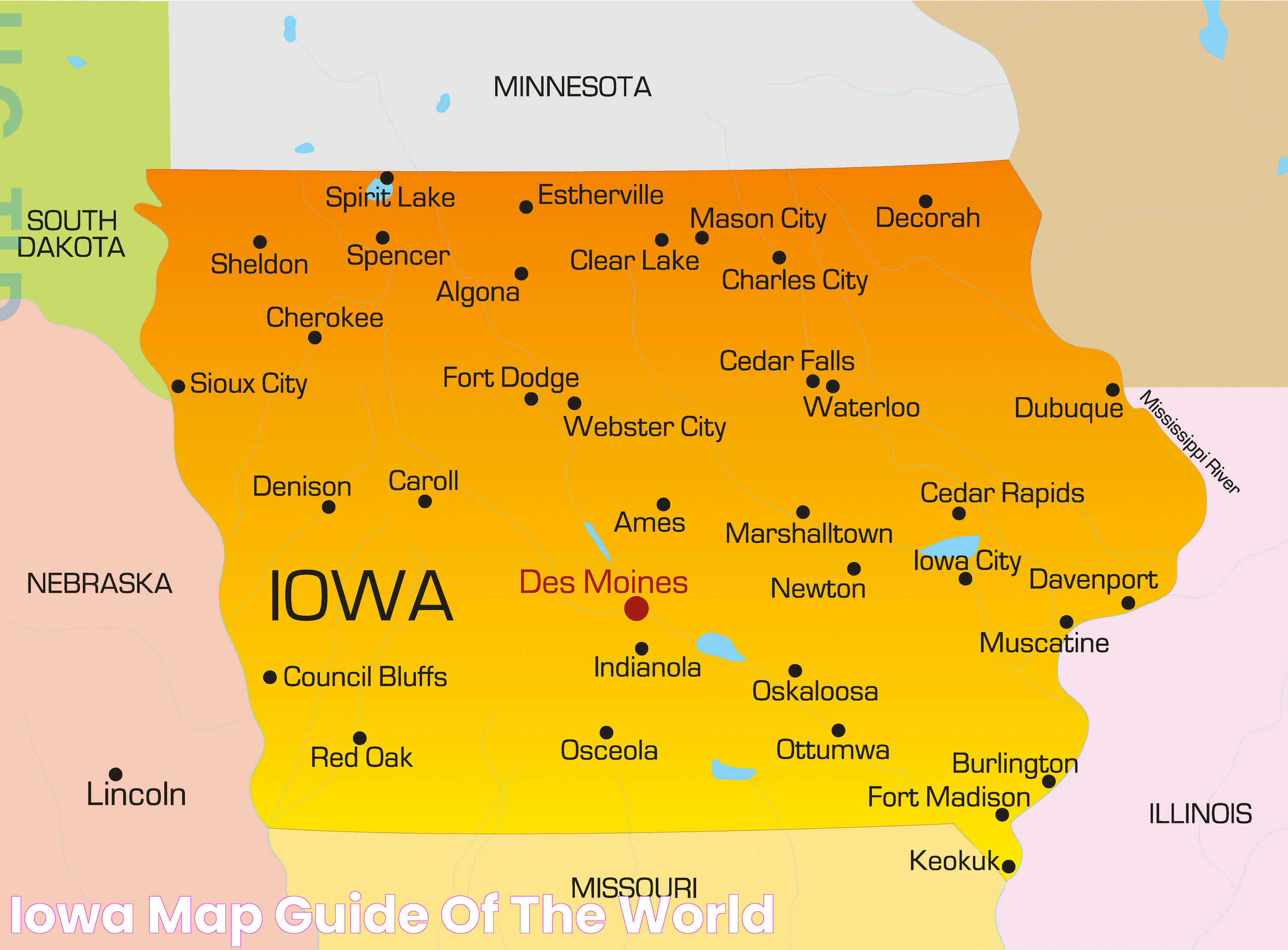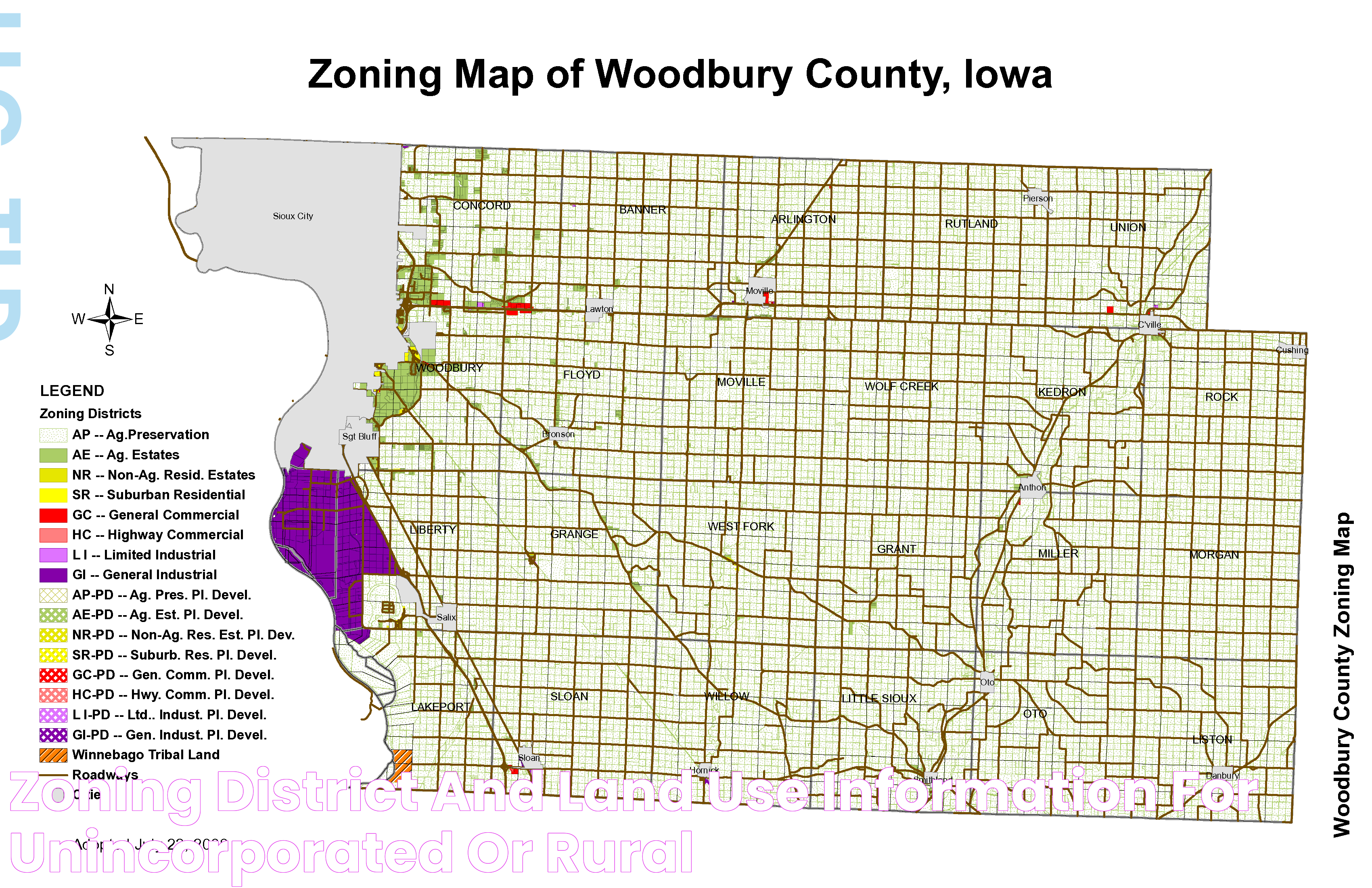Unincorporated cities in Iowa are unique elements of the state's geographical and cultural tapestry. Despite their lack of formal governance, these communities offer a rich blend of history, character, and charm. Understanding what makes these unincorporated areas distinct can provide insights into their role in Iowa's broader societal framework. The concept of unincorporated areas can be intriguing, as they often maintain a sense of autonomy and individuality. These areas do not operate under municipal charters, which means they lack the structured governance of incorporated cities. However, they often benefit from a strong sense of community and tradition, brought together by shared experiences and local pride.
Iowa, known for its vast landscapes and agricultural prowess, is home to numerous unincorporated communities that contribute to its diverse identity. These areas may not appear on every map, but they hold significant cultural and historical value. From their unique attractions to the stories of residents who call these places home, there’s much to explore and appreciate about the unincorporated cities in Iowa. This article will take you on a journey through these hidden gems, examining their histories, the lifestyles of their inhabitants, and their contributions to the state's rich tapestry.
Delving into the world of unincorporated cities in Iowa reveals a different perspective on community and governance. Without the constraints of formal city regulations, these areas often thrive on the spirit and cooperation of their residents. This article aims to shed light on the fascinating dynamics of these communities, exploring how they maintain their identity and contribute to the larger story of Iowa. Join us as we uncover the unique aspects of unincorporated cities in Iowa, from their historical roots to the vibrant life they support today.
Read also:Erno Laszlo The Iconic Skincare Revolution
Table of Contents
- What Defines an Unincorporated City?
- History and Formation of Unincorporated Cities in Iowa
- Unique Features of Unincorporated Communities
- Community Life and Culture
- How Are Unincorporated Cities Governed?
- Economic Contributions of Unincorporated Areas
- Examples of Unincorporated Cities in Iowa
- Challenges Faced by Unincorporated Areas
- Advantages of Living in an Unincorporated City
- Environmental Impact and Sustainability
- Future Prospects for Unincorporated Cities
- Comparison with Incorporated Cities
- FAQs About Unincorporated Cities in Iowa
- Conclusion
What Defines an Unincorporated City?
An unincorporated city, or community, in Iowa is typically a region that has not been formally incorporated into a city or town with its own local government. These areas often fall under the jurisdiction of the county in which they are located. The lack of a municipal government means that residents may rely more on county-level services and governance. In some cases, unincorporated cities may have a post office or a recognized community name, but they do not have elected city officials or municipal services like police departments. Understanding the definition and status of these areas is crucial to appreciating their role in the state's landscape.
History and Formation of Unincorporated Cities in Iowa
The history of unincorporated cities in Iowa is often tied to the state's broader historical development. Many of these areas began as settlements that never incorporated due to various reasons, such as population size, economic viability, or the desire to maintain autonomy. During the 19th and early 20th centuries, as Iowa expanded and developed, certain communities chose not to incorporate, often due to the financial and administrative burdens that come with formal incorporation. This history often reflects a community's desire to maintain its unique identity and operate independently within a broader county framework.
Unique Features of Unincorporated Communities
Unincorporated communities often boast unique features that set them apart from their incorporated counterparts. These features might include historical buildings, landmarks, or natural landscapes that have been preserved due to the absence of urban development pressures. Many unincorporated cities in Iowa are home to historic sites, quaint rural settings, and vibrant local traditions that offer a glimpse into the state’s past. Additionally, these areas can develop unique local customs and practices, reflecting the distinct character and history of the community.
Why Do Some Communities Remain Unincorporated?
Several factors contribute to a community’s decision to remain unincorporated. The most common reasons include:
- Desire for Autonomy: Residents may prefer the freedom to manage local affairs without the constraints of municipal regulations.
- Cost Considerations: Incorporation can bring additional taxes and administrative costs, which some communities might find burdensome.
- Population Size: Smaller populations may not meet the criteria or have the need for incorporation.
- Historical Reasons: Communities with longstanding traditions may choose to remain unincorporated to preserve their heritage.
Community Life and Culture
Community life in unincorporated cities in Iowa is often characterized by a strong sense of kinship and cooperation. Residents frequently rely on each other to organize events, manage resources, and maintain communal spaces. This can lead to a tight-knit community where social ties and local culture are highly valued. Community events, local festivals, and social gatherings play a crucial role in maintaining the cultural fabric of these areas. The absence of formal governance structures often means that community members take on roles and responsibilities that might otherwise fall to municipal authorities, fostering a spirit of volunteerism and mutual support.
How Are Unincorporated Cities Governed?
Governance in unincorporated cities in Iowa is typically handled at the county level. County governments provide essential services such as law enforcement, road maintenance, and public health. However, the level of service and the specific responsibilities can vary significantly depending on the county and the community's needs. In some cases, residents of unincorporated areas may form local associations or boards to address specific issues or advocate for the community's interests. These informal governance structures can play a vital role in ensuring that the needs of the community are met and that residents have a voice in local affairs.
Read also:Royal Lives Meghan And Harrys Journey Beyond Tradition
What Role Do County Governments Play?
County governments are crucial in managing and providing services to unincorporated areas. Their roles often include:
- Law Enforcement: Providing policing through the county sheriff's office.
- Infrastructure Maintenance: Maintaining roads, bridges, and public facilities.
- Health and Safety: Offering public health services and emergency management.
- Zoning and Development: Regulating land use and development within the county.
Economic Contributions of Unincorporated Areas
Unincorporated cities in Iowa contribute to the state's economy in various ways. Many of these communities are located in rural areas and rely on agriculture as a primary economic driver. Farming, livestock production, and related industries often form the backbone of these local economies. Additionally, unincorporated areas may attract tourism due to their historical sites, natural beauty, and cultural events. Small businesses, crafts, and local products also contribute to the economic vitality of these regions. The unique characteristics of unincorporated communities can offer niche opportunities for economic development and innovation, fostering a diverse economic landscape.
Examples of Unincorporated Cities in Iowa
There are numerous examples of unincorporated cities in Iowa, each with its own story and significance. Some notable examples include:
- Amish Country: Known for its distinct culture and crafts, this area attracts many visitors interested in the Amish way of life.
- Little Amana: As part of the Amana Colonies, this community is rich in history and German heritage, offering unique attractions and events.
- Hickory Hollow: Nestled in a picturesque setting, this community is known for its scenic landscapes and outdoor recreational opportunities.
Challenges Faced by Unincorporated Areas
Unincorporated cities in Iowa face several challenges, often related to their lack of formal governance and infrastructure. Common issues include:
- Limited Access to Services: Residents may have to travel farther for essential services like healthcare and education.
- Infrastructure Funding: Maintaining roads and public facilities can be challenging without a municipal budget.
- Representation: Without a city council or mayor, residents may struggle to have their voices heard at higher levels of government.
- Economic Development: Attracting business and investment can be difficult without the support of municipal resources and planning.
Advantages of Living in an Unincorporated City
Despite the challenges, there are several advantages to living in an unincorporated city in Iowa. These include:
- Lower Taxes: Without city taxes, residents often enjoy lower overall tax burdens.
- Autonomy: Greater freedom in land use and fewer regulations can appeal to some residents.
- Community Spirit: The close-knit nature of these communities fosters strong social connections and support networks.
- Rural Lifestyle: Many unincorporated areas offer a peaceful, rural lifestyle with access to nature and open spaces.
Environmental Impact and Sustainability
Unincorporated cities in Iowa can have a unique relationship with the environment. Due to their often rural settings, these communities may place a strong emphasis on sustainability and conservation. Local residents may engage in practices such as sustainable farming, conservation of natural resources, and protection of local wildlife habitats. The absence of urban development pressures can also contribute to the preservation of open spaces and natural landscapes. However, these communities must also balance the need for economic growth and development with environmental stewardship, ensuring that their practices support long-term sustainability.
Future Prospects for Unincorporated Cities
The future of unincorporated cities in Iowa is shaped by several factors, including demographic changes, economic trends, and policy decisions. As rural populations fluctuate and economic conditions evolve, these communities may face both opportunities and challenges. Some unincorporated areas may consider incorporation to gain access to additional resources and services, while others may continue to thrive independently. The ability to adapt to changing circumstances and leverage local strengths will be crucial for the continued success and preservation of these unique communities. Additionally, advancements in technology and infrastructure could provide new avenues for growth and development, enhancing the quality of life for residents.
Comparison with Incorporated Cities
When comparing unincorporated cities with incorporated ones, several key differences emerge. Incorporated cities typically offer more structured governance, with elected officials and municipal services. This can lead to greater access to resources and infrastructure, but also higher taxes and more regulations. In contrast, unincorporated areas often enjoy lower taxes and greater autonomy but may lack access to certain services and face challenges in representation. The choice between living in an incorporated or unincorporated area often depends on personal preferences and lifestyle priorities, such as the desire for community involvement, access to services, and the appeal of rural or urban living.
FAQs About Unincorporated Cities in Iowa
What is an unincorporated city?
An unincorporated city is a community that is not governed by its own municipal corporation and instead falls under the jurisdiction of the county government.
How are services provided in unincorporated cities?
Services in unincorporated cities are typically provided by the county, including law enforcement, road maintenance, and public health services.
Why do some communities choose to remain unincorporated?
Communities may choose to remain unincorporated due to factors like a desire for autonomy, lower taxes, small population size, or historical reasons.
What are the economic contributions of unincorporated cities in Iowa?
Unincorporated cities contribute to Iowa's economy through agriculture, tourism, small businesses, and local crafts, reflecting their rural and cultural heritage.
What challenges do unincorporated areas face?
Challenges include limited access to services, infrastructure funding, representation issues, and difficulties in attracting business and investment.
Are there advantages to living in an unincorporated city?
Advantages include lower taxes, greater autonomy, a strong sense of community, and a rural lifestyle with access to nature and open spaces.
Conclusion
Unincorporated cities in Iowa offer a unique blend of history, culture, and community spirit. Despite the challenges they face, these areas continue to thrive, contributing to the state's rich tapestry. By understanding their distinct characteristics and roles within the broader framework of Iowa, we can appreciate the diverse and vibrant nature of these hidden gems. As they navigate the future, unincorporated cities will continue to play a vital role in shaping the identity and economy of Iowa, preserving the heritage and spirit that make them truly special.

